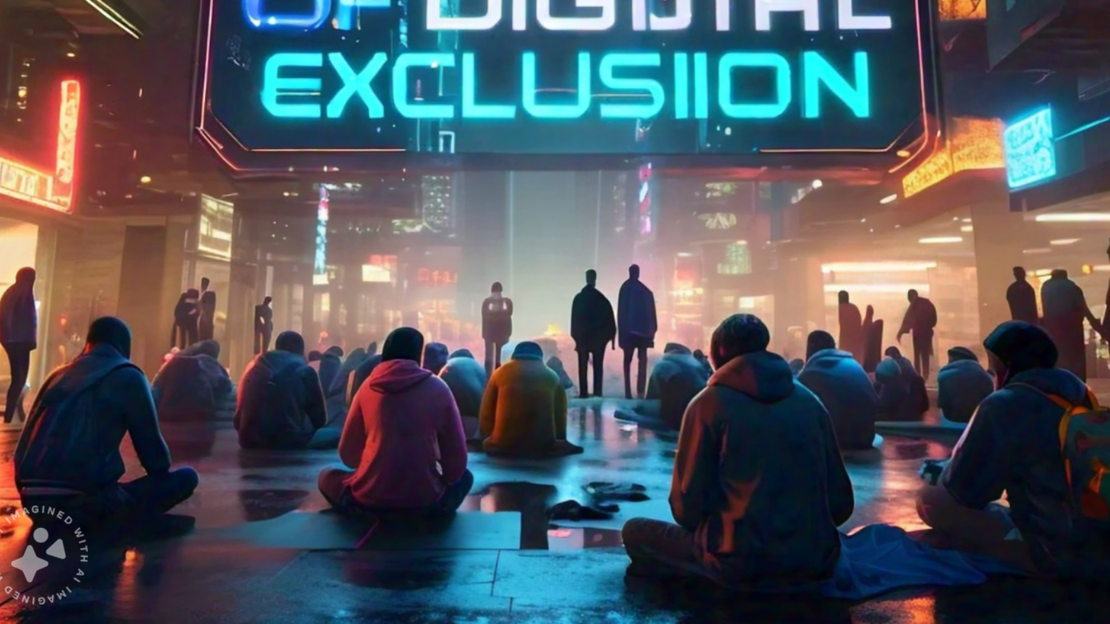The New Age of Digital Exclusion: Is AI Creating a New Form of Illiteracy?
As artificial intelligence (AI) becomes increasingly integrated into every aspect of our lives, a new kind of digital exclusion is emerging—one that goes beyond the traditional concepts of alphabetism and lack of internet access. This exclusion stems from a lack of understanding and ability to interact with AI technologies, creating a modern form of illiteracy: AI illiteracy.
In the same way that traditional illiteracy prevents individuals from accessing education, employment, and opportunities, AI illiteracy threatens to leave many people behind in a rapidly evolving world. The widespread adoption of AI tools—from automated customer service bots and predictive algorithms to advanced machine learning models—requires a baseline level of knowledge to utilize effectively and responsibly. Without this understanding, individuals may find themselves excluded not just from using these tools, but from making informed decisions in a society increasingly shaped by AI.
AI Illiteracy: A New Kind of Analphabetism?
While traditional alphabetism refers to the inability to read and write, AI illiteracy involves a lack of knowledge about how artificial intelligence works, its potential, and its limitations. Being AI literate means more than just being able to use an AI tool; it means understanding the underlying principles, ethical considerations, and societal impact of these technologies.
Many people today can use a smartphone or navigate the internet, but that doesn’t mean they understand how AI algorithms shape their news feeds, influence their purchasing decisions, or determine the outcome of their loan applications. This lack of understanding places them in a vulnerable position, where they are subjected to the decisions of AI systems without the ability to question or engage with them meaningfully.
The Risk of Digital Dependency
As AI tools become more advanced and integrated into everyday activities, there is a growing risk of digital dependency. When people rely on AI without understanding how it functions, it can lead to a passive relationship with technology. Users become dependent on tools they don’t fully comprehend, surrendering control over decision-making and critical thinking.
This dynamic can be viewed as a form of modern analphabetism, where people are not just excluded from participating in technology, but are actively disempowered by their inability to engage critically with it. They may be able to operate a system, but without an understanding of its biases, data sources, or ethical concerns, they are at the mercy of these tools rather than being empowered by them.
Bridging the AI Literacy Gap
To prevent AI illiteracy from becoming a widespread form of digital exclusion, we need to prioritize AI literacy—a foundational understanding of AI technologies that should be accessible to everyone, not just technical experts. This includes:
1. Education and Awareness: Incorporate AI concepts into educational curricula, starting at an early age, to build foundational knowledge about how these technologies work.
2. Critical Thinking and Ethics: Teach people to think critically about AI applications, understand their limitations, and recognize ethical implications, such as biases and data privacy concerns.
3. Public Discourse: Foster discussions about the role of AI in society, encouraging diverse perspectives to shape policies and regulations that ensure AI development benefits everyone.
4. Transparency and Accessibility: AI developers and companies should strive for transparency in how their systems work and make efforts to simplify complex concepts for public understanding.
By taking these steps, we can ensure that AI tools empower rather than exclude. The aim should not be to turn everyone into a data scientist or machine learning expert but to provide individuals with the knowledge they need to understand and navigate a world increasingly influenced by AI.
Avoiding a Two-Tiered Society
If we fail to address AI illiteracy, we risk creating a two-tiered society: one where a small group of AI literate individuals holds power and understanding, while the majority remains in a state of modern digital analphabetism, unable to question or influence the technology that shapes their lives. This division would exacerbate existing inequalities and create new forms of social stratification.
AI has the potential to revolutionize industries, improve quality of life, and solve complex problems. However, without a collective effort to build AI literacy, these benefits will be unevenly distributed, leaving many unable to participate in or benefit from the advances of the digital age. The challenge is not just to create smarter technologies but to build a smarter, more informed society that can engage with these tools in a meaningful and empowering way.
The future of AI should be one of inclusion and empowerment, not of exclusion and dependency. By recognizing and addressing AI illiteracy, we can ensure that the rise of artificial intelligence contributes to a world where knowledge and opportunity are truly universal.
⚠️ Please take a look at the LLM Disclaimer
